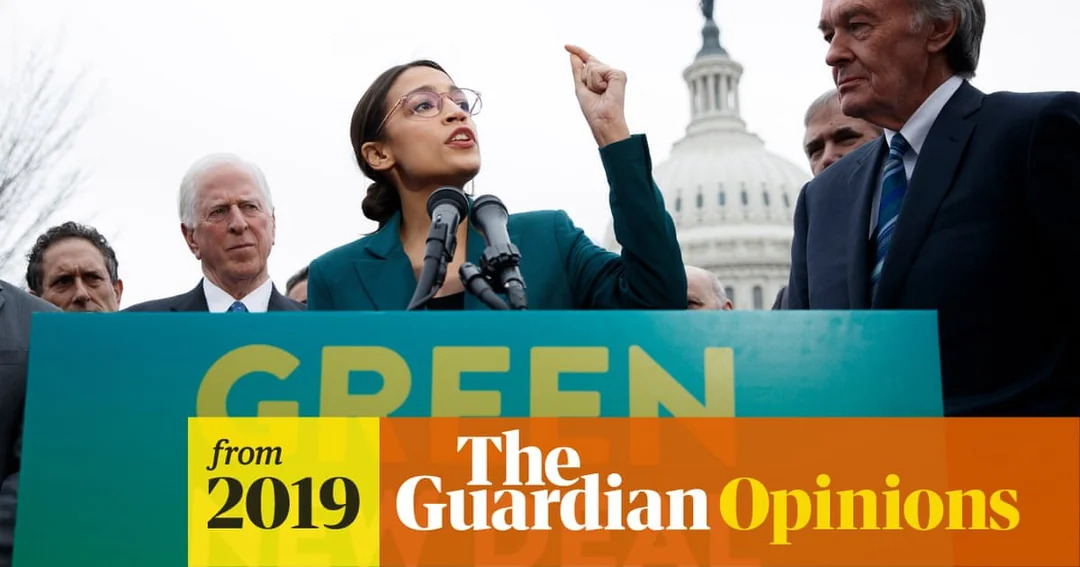

How do you view the relationship between our current obsession with economic growth and its impact on the environment? Do you think a Green New Deal could be a solution to this problem?
The relationship between our current obsession with economic growth and its impact on the environment is complex and multifaceted. On one hand, economic growth has undoubtedly led to significant improvements in living standards, technological advancements, and poverty reduction. However, this growth has come at a substantial cost to the environment, including increased greenhouse gas emissions, deforestation, depletion of natural resources, and pollution.
The pursuit of economic growth often prioritizes short-term gains over long-term sustainability. Industries such as fossil fuels, manufacturing, and agriculture contribute significantly to environmental degradation. For instance, the burning of fossil fuels for energy production is the largest contributor to global greenhouse gas emissions, leading to climate change and its associated impacts on ecosystems and human societies.
A potential solution to this problem is the implementation of a Green New Deal (GND). The GND is a policy framework that aims to simultaneously address climate change, economic inequality, and job creation through a transition to a sustainable and low-carbon economy. It seeks to decouple economic growth from environmental degradation by investing in renewable energy, energy efficiency, sustainable transportation, and regenerative agriculture.
One example of a country implementing a Green New Deal-like policy is Germany. After the 2011 Fukushima nuclear disaster, Germany decided to phase out nuclear power and transition to a renewable energy-based economy. This decision, known as the Energiewende or Energy Transition, involved significant investments in renewable energy sources such as wind and solar power. As a result, Germany has become a global leader in renewable energy production, generating around 40% of its electricity from renewable sources in 2019.
Moreover, the GND has gained political traction in various countries, including the United States. Advocates argue that it not only addresses environmental concerns but also creates new employment opportunities and reduces social inequalities. For example, the GND proposes investments in retrofitting buildings to improve energy efficiency, which could create jobs in construction and engineering while reducing energy consumption and carbon emissions.
However, it is important to acknowledge that the implementation of a Green New Deal faces challenges. Critics argue that the transition to a sustainable economy may lead to job losses in certain industries, particularly those reliant on fossil fuels. Additionally, the cost of implementing such a comprehensive policy framework can be substantial, requiring significant public and private investments.
In conclusion, the relationship between our obsession with economic growth and its impact on the environment is a critical issue that needs to be addressed. While economic growth has brought numerous benefits, it has also contributed to environmental degradation. The Green New Deal offers a potential solution by promoting a sustainable and low-carbon economy. However, the successful implementation of such a policy framework requires careful planning, collaboration between stakeholders, and consideration of potential economic and social impacts.
Related Posts
© 2026 Invastor. All Rights Reserved

User Comments
Bernard Johnson
2 years ago
Absolutely. Our actions today will shape the world we leave for future generations, and finding a way to balance growth with sustainability is key to ensuring a thriving planet for all.
Argus Riley
2 years ago
And these conversations are important. They help raise awareness, promote understanding, and encourage us to critically examine the choices we're making for our future.
Andrea Brown
2 years ago
It's definitely a step in the right direction, but it's going to take a collective effort, political will, and innovative thinking to make it a reality.
Anders Williams
2 years ago
So, do you think a Green New Deal is a feasible and effective solution to address both our environmental challenges and economic needs?
Bernard Johnson
2 years ago
Ultimately, it's about changing the way we perceive growth – shifting from a narrow focus on economic expansion to a broader vision that encompasses ecological well-being and social progress.
Argus Riley
2 years ago
I think it comes down to public awareness and demand. If people prioritize sustainability and express support for initiatives like the Green New Deal, it could push governments and industries to take action.
Andrea Brown
2 years ago
Still, there's skepticism about whether governments and industries will truly commit to such a significant transformation.
Anders Williams
2 years ago
But it's not just about technology. The Green New Deal also emphasizes social equity and justice, ensuring that the transition benefits everyone.
Bernard Johnson
2 years ago
And that's where the Green New Deal offers a potential solution. It encourages a shift towards cleaner, more sustainable industries and technologies.
Argus Riley
2 years ago
That's a valid point. Economic growth has lifted many people out of poverty, but the challenge is finding a way to achieve growth without harming the environment.